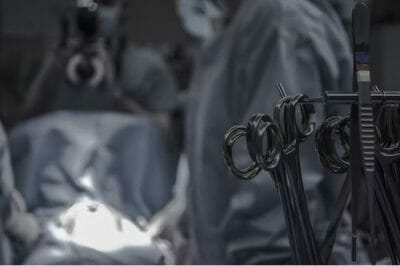Rotator cuff surgery is a common procedure that can be used to treat the pain and weakness caused by rotator cuff tears. It is an effective way to restore mobility, strength, and stability in your shoulder joint. While this type of surgery can be beneficial, it is important to understand the risks and potential complications associated with it. This health guide will provide you with vital information about rotator cuff surgery, so you can make an informed decision about your care.
1. Researching different hospitals in your area
Before undergoing rotator cuff surgery, it is important to research different hospitals in your area. Each hospital offers a unique approach to care, so it’s essential to find one that meets your needs and expectations. You should consider the qualifications of the surgeons who work at each facility, as well as their experience with rotator cuff surgery specifically. Ask about post-operative rehabilitation protocols and any other services they provide after surgery. Additionally, look into insurance coverage options, payment plans, and financing programs available at each location. For example, if you want rotator cuff surgery in Dallas, Texas, you should look into the services offered by hospitals in that area. It is also important to make sure the hospital is fully accredited and has a good reputation when it comes to patient safety.
2. Knowing the types of rotator cuff surgery
There are several different types of rotator cuff surgeries available, and it is important to understand which one is best suited for your condition. The most common type is open repair surgery, in which a surgeon makes an incision into your shoulder joint to gain access to the torn tendon or muscle. Arthroscopic repair uses tiny instruments and cameras to fix the tear without making any large incisions. Finally, there is partial rotator cuff tear arthroplasty (PRCTA) which involves removing some of the damaged tissue surrounding the tear and replacing it with artificial components. Depending on the extent of your injury, your doctor may recommend one of these treatments or suggest a combination approach.
3. Preparing for surgery
It is important to prepare both physically and mentally for rotator cuff surgery. Before the procedure, your doctor will need to evaluate you and discuss any potential risks and side effects associated with the operation. You should also be prepared to answer questions about your medical history, including any medications or supplements that you take. Additionally, make sure you have someone who can drive you home after the procedure as well as provide assistance during your recovery period. Finally, it is important to eat a healthy diet before your operation and avoid taking any medications without consulting with your doctor first. This will help ensure that your body is in optimal condition before undergoing surgery.
4. Recovering from surgery
Recovery after rotator cuff surgery can last anywhere from six weeks to several months. During this time, it is important to follow your doctor’s instructions and attend all physical therapy sessions as prescribed. You may experience some pain and discomfort during the initial recovery phase, so be sure to take any medications as directed by your healthcare provider. Additionally, you should avoid any activities that could cause further injury or strain on the shoulder joint. Furthermore, you should practice range-of-motion exercises consistently to maintain flexibility and strength in the affected area.
5. The importance of follow-up care
Follow-up care is an important part of the recovery process after rotator cuff surgery. During this period, it is important to attend all appointments and physical therapy sessions as requested by your doctor. Additionally, you should keep a close eye on any changes in your condition and alert your healthcare provider to any potential issues. This will ensure that any complications or risks are addressed immediately. Furthermore, follow-up visits allow your doctor to monitor your progress over time and make adjustments to your treatment plan if necessary. By following these guidelines for follow-up care, you can help ensure a successful outcome after rotator cuff surgery.
6. Tips for living with rotator cuff injuries
Living with a rotator cuff injury can be difficult, but there are ways to manage the condition and live an active lifestyle. Stretching and strengthening exercises can help improve your range of motion and reduce your risk of further injury. Additionally, applying cold packs or heat packs to the affected area can help reduce pain and inflammation. Finally, it is important to rest when needed and use assistive devices such as a cane if necessary while recovering from surgery. By following these tips, you can help ensure that your rotator cuff injury heals properly over time.
